This gorgeous shrub is called Wax Flower or Philotheca, which apparently means “loving receptacle”. And that it is, providing plenty of flowers for pollinators and scent for humans, it is a very hardy species which can handle sun and shade in equal measure. Because of its hardiness it is one of the most widely cultivated of all of Australia’s native plants, leading to many cultivars and hybrids now in production.
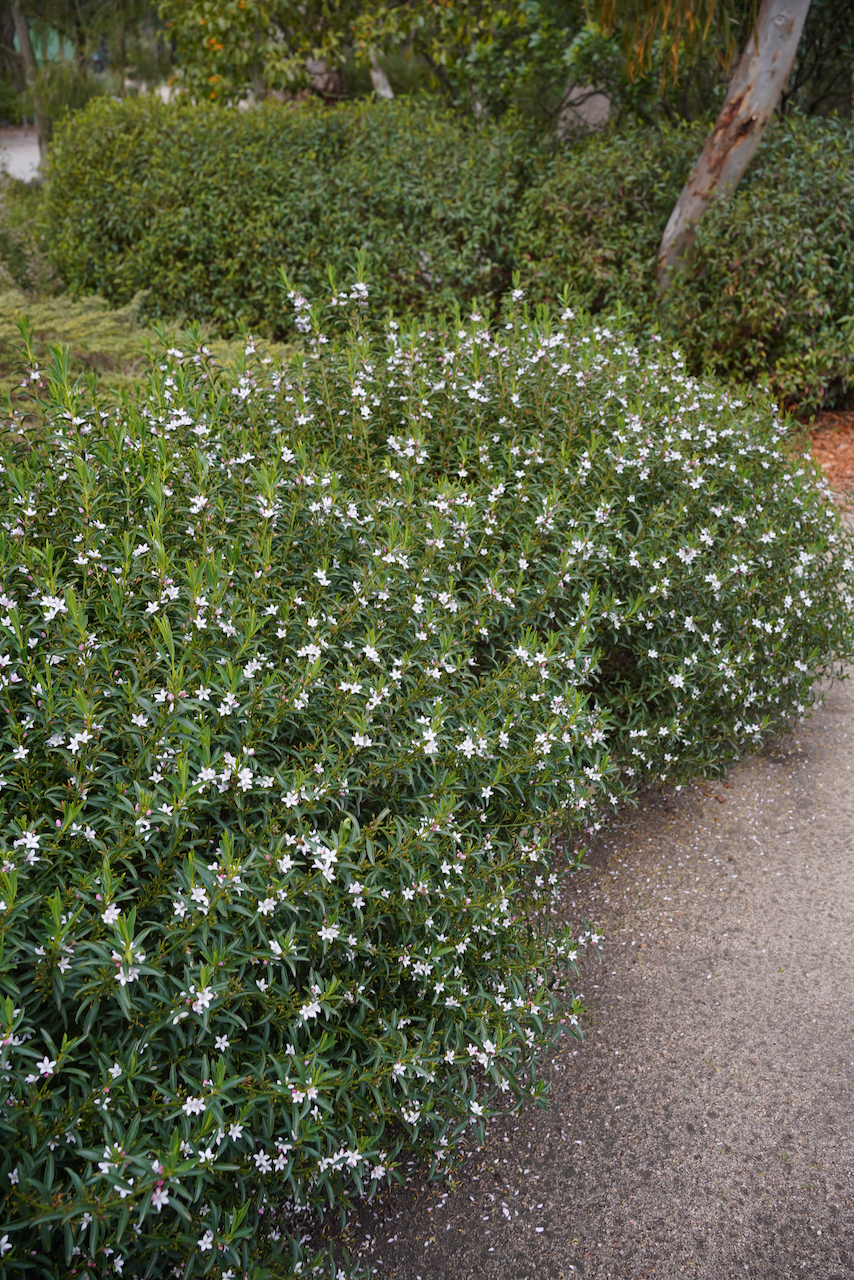
All records of this plant refer to its hardiness. It grows in a wide range of environments and naturally occurs on the south east coast of QLD, east coast of NSW and extends west as far as Dubbo and into Victoria. Because of its hardiness it is one of the most widely cultivated of all of Australia’s native plants.
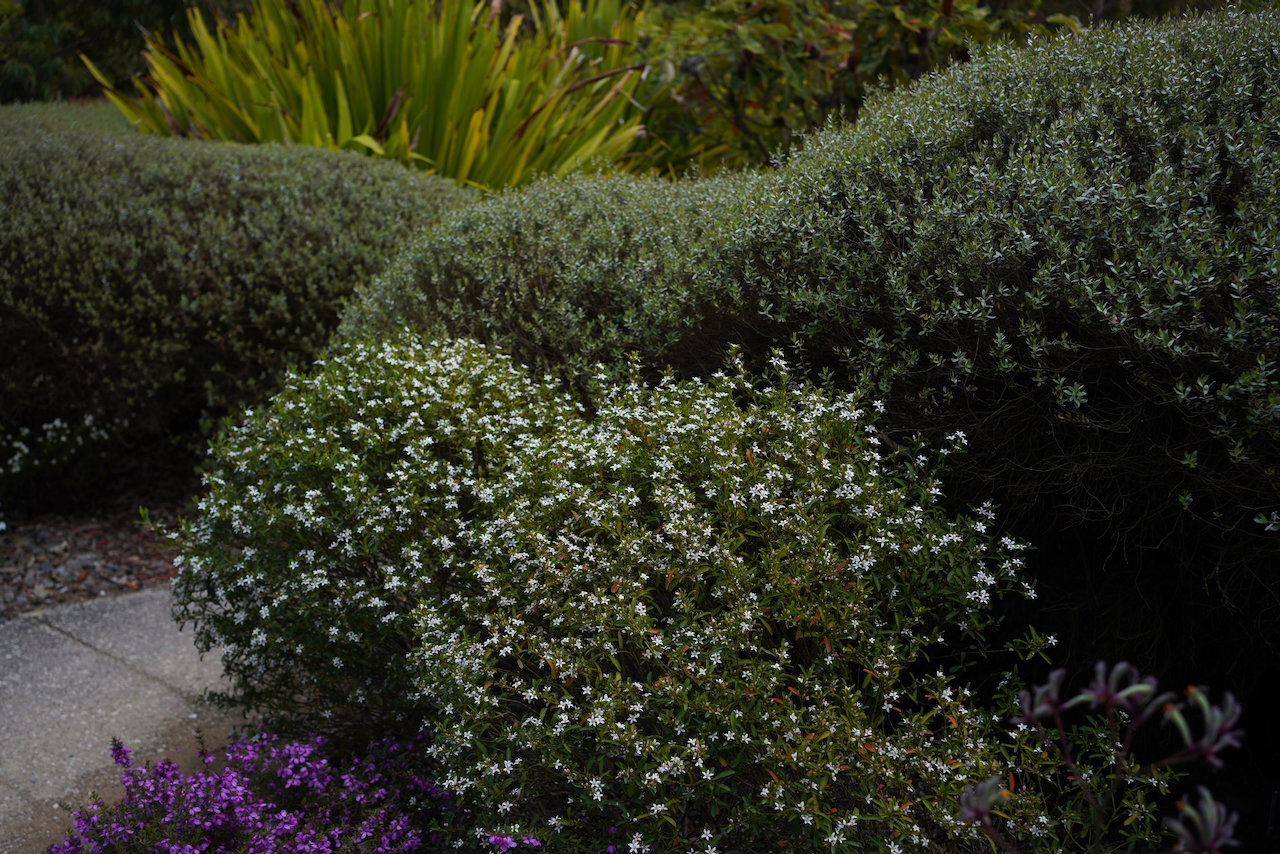
The leaves have a waxy feel, and when crushed release an oil that has a pleasant smell, it is far easier to grow than their relatives the Boronias. It has a long flowering season which is usually en masse in winter and spring, but it also looks great in Summer and Autumn. The small pale pink buds bursting open to white star shaped flowers contrasting with the green foliage. The straight species grows up to 2mt tall and 2mt wide, and I will list the more compact forms below.
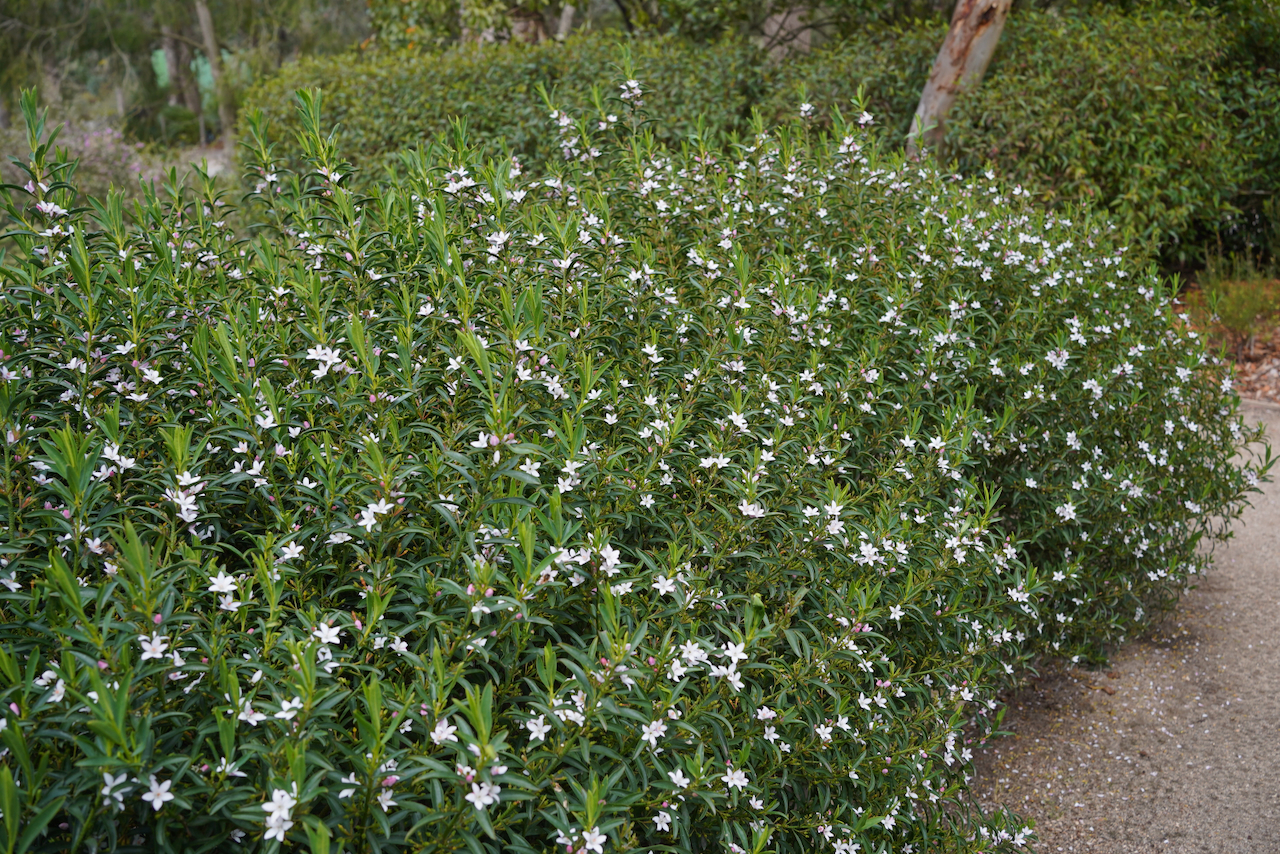
Can be grown as a low hedge or windbreak as it anchors well. The branches are flexible and tough making it not liable to breakage in strong winds. .
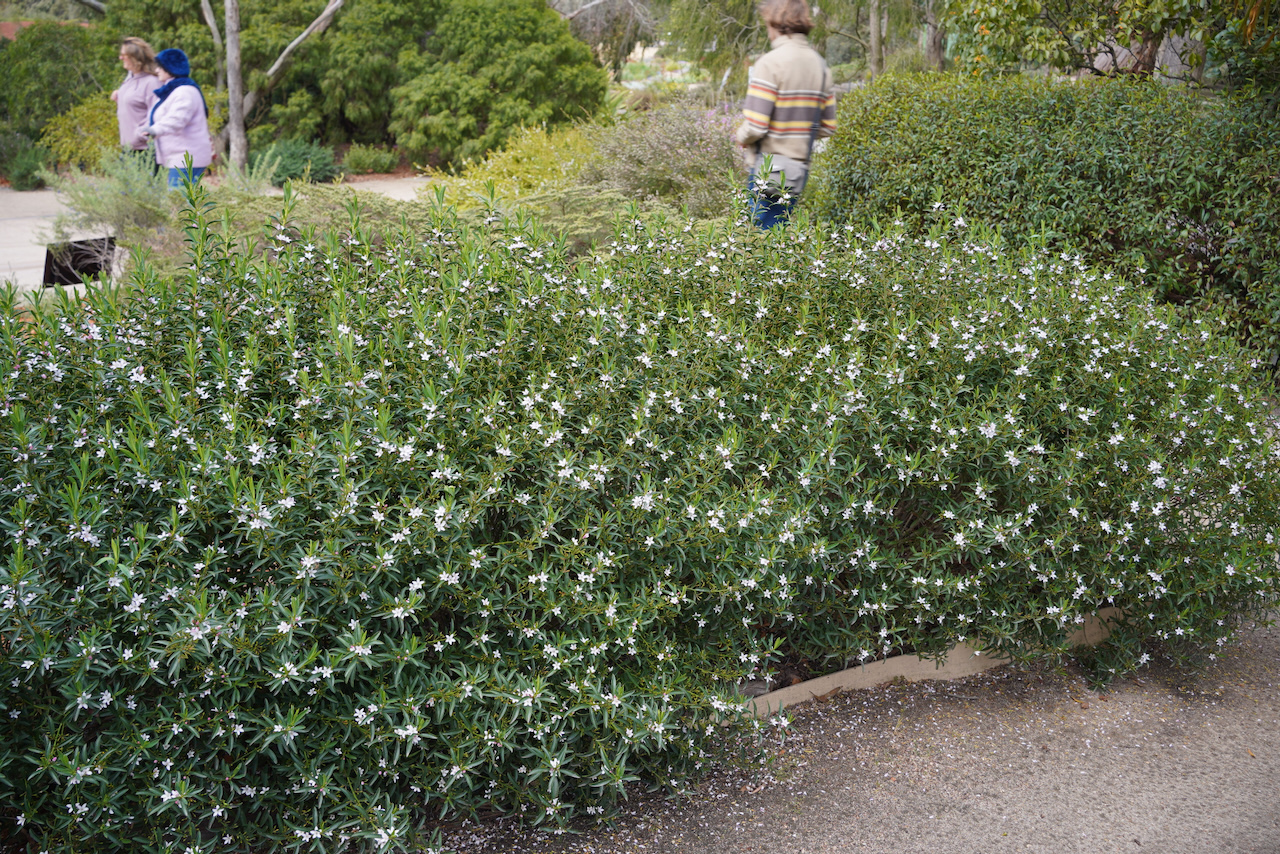
Philotheca myoporoides is mostly pest free, however if grown in a heavy shaded spot it can be effected by sooty mold covering the leaves. It can be washed off with cotton wool and water or a treatment of white oil.
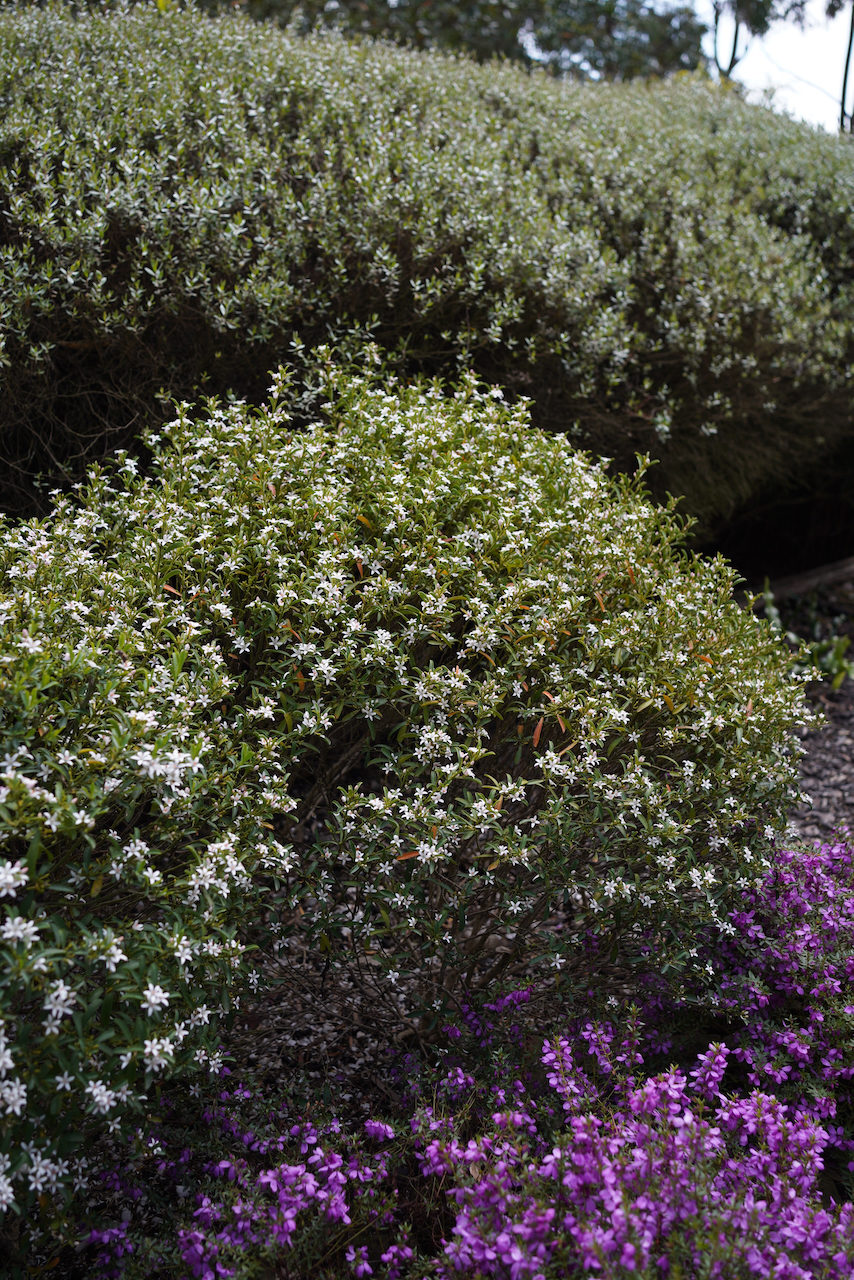
Philotheca myoporoides forms and culitavrs include but are not limited to Philotheca myoporoides ‘Profusion’ 0.5-1m x 0.5-1m, Philotheca myoporoides ‘Winter Rouge’ 1m x 1m, Philotheca myoporoides ‘Flower Girl’ 1.5m x 1.5m and Philotheca myoporoides ‘Bournda Beauty’ 2m x 2m, then there are the long leaf forms too. To be honest I prefer the larger varities, as I like to use it as a fence screening or backdrop species.
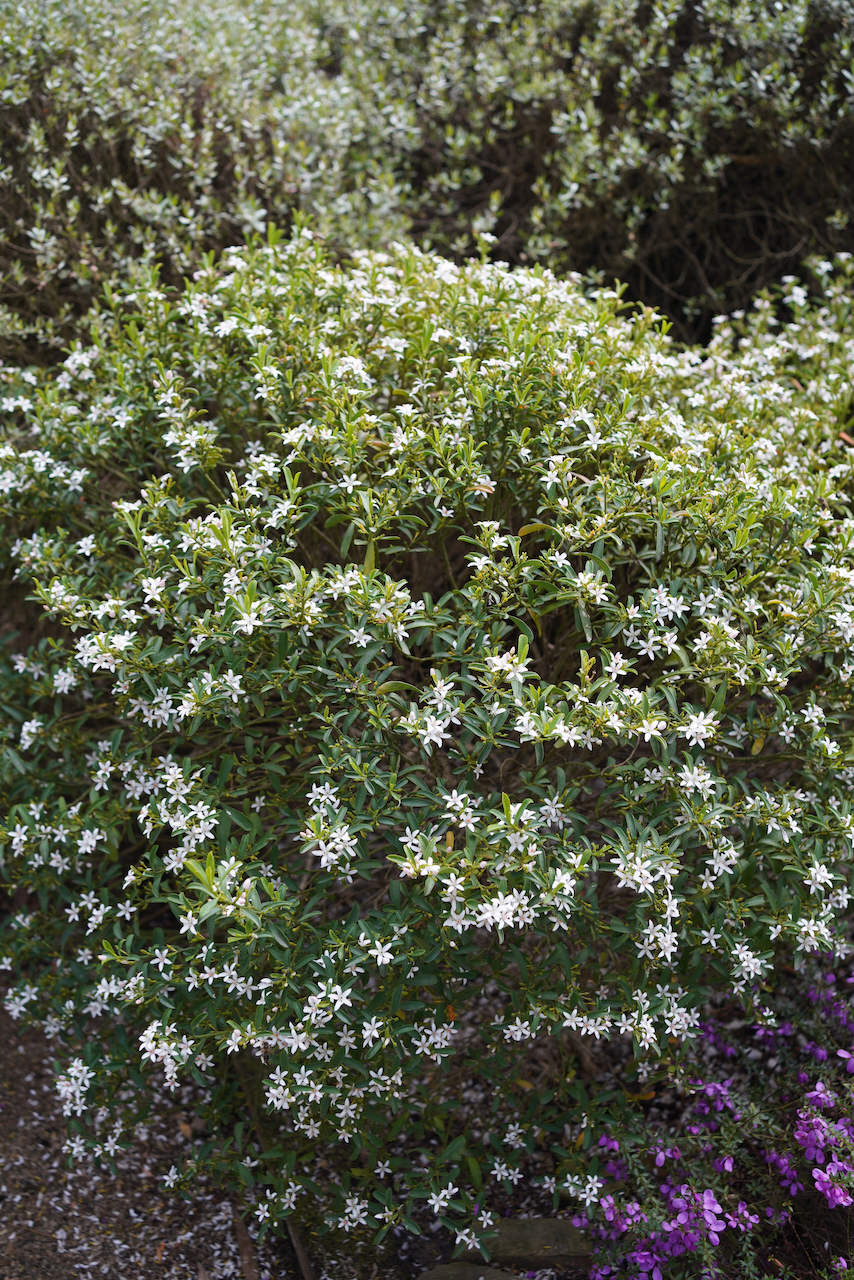
Philotheca myoporoides grows best in well-drained sandy soils, however I also grow it in clay and it seems very happy as long as the soil doesn’t become water logged. It can also be grown in full sun and in dappled shade. Lightly prune after flowering to maintain compact shape.
This is such a versatile native shrub and well worth growing for so many reasons. Why not try this one in the garden or in a pot. Bring the flowers inside as a cut bunch. The Bees and Butterflies will thank you for growing this one.

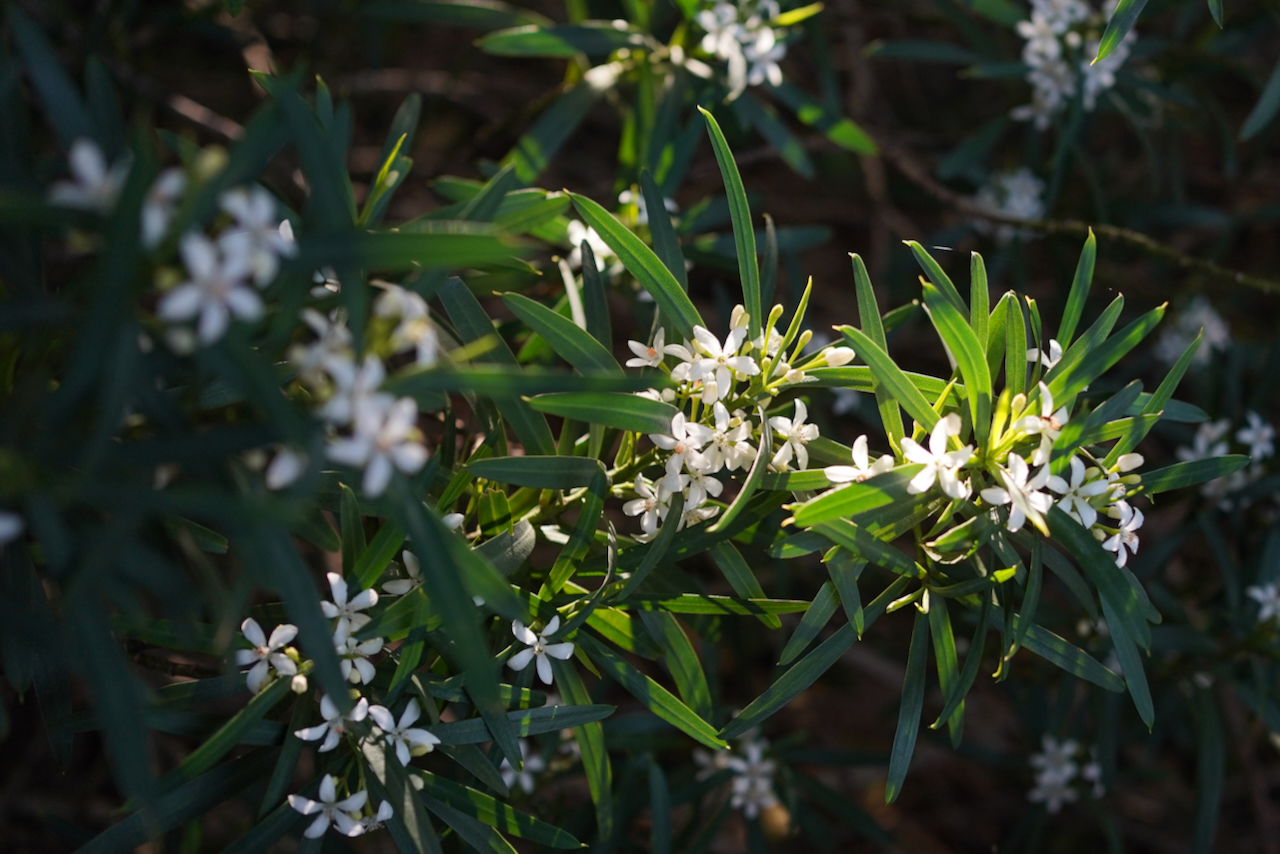
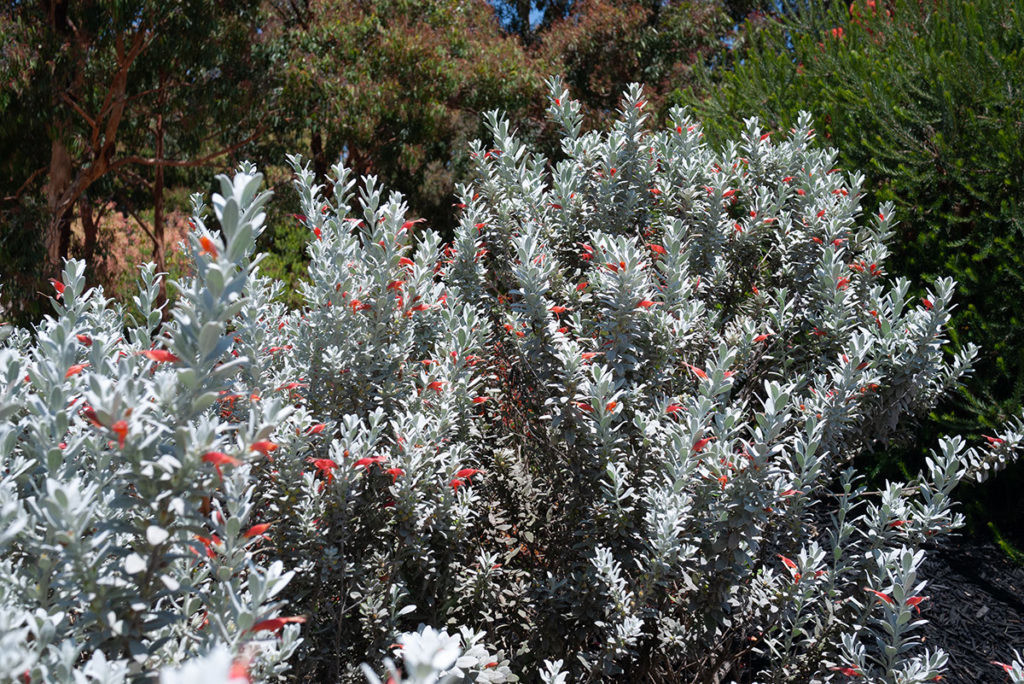

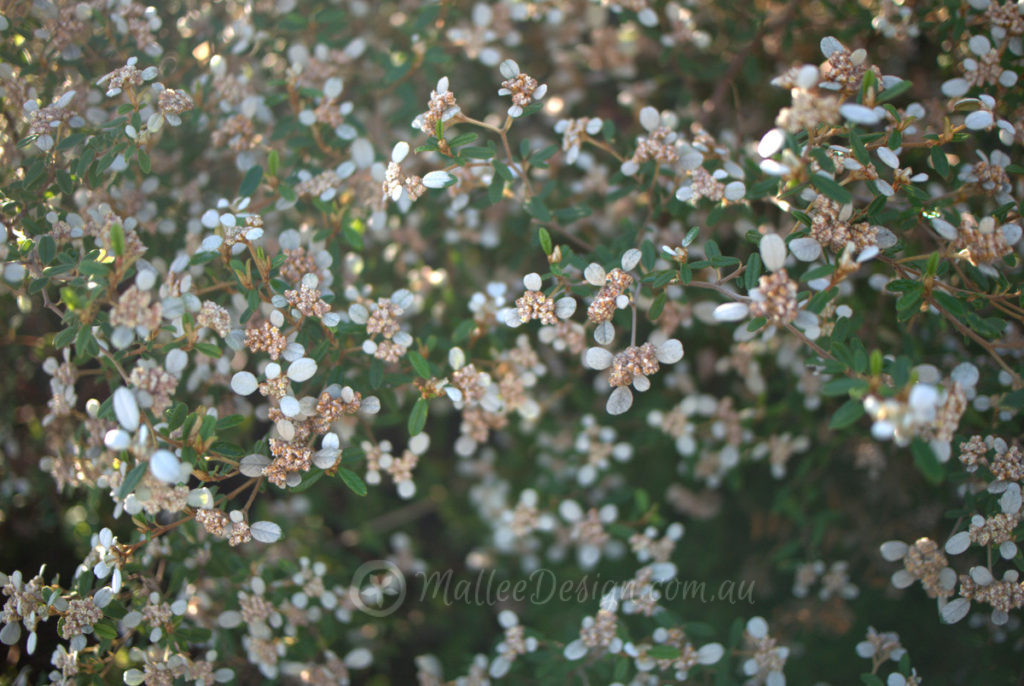

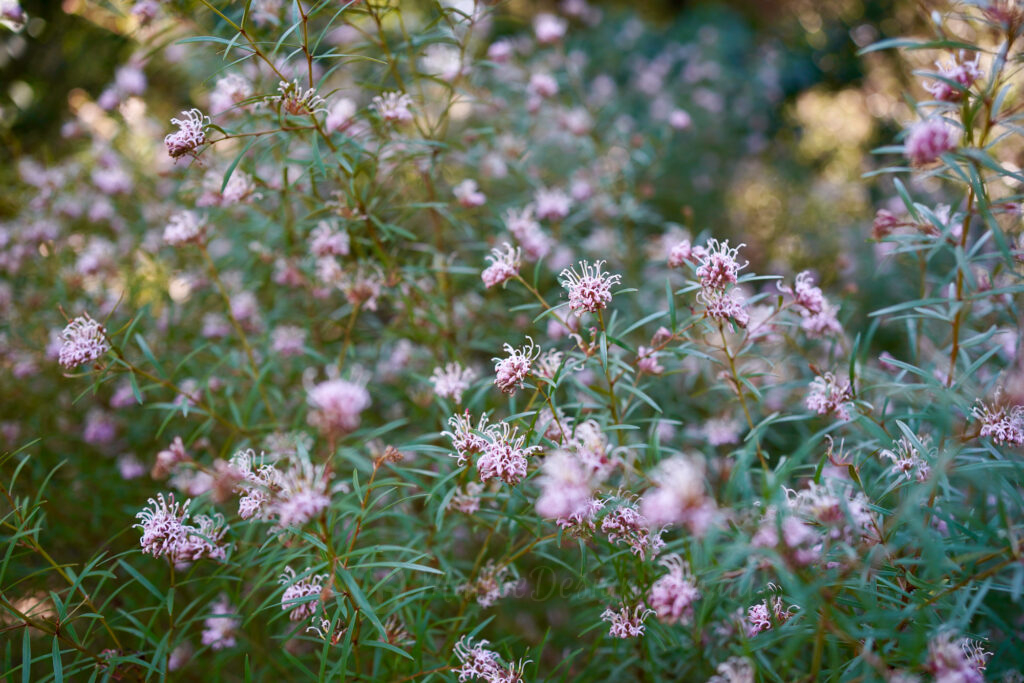
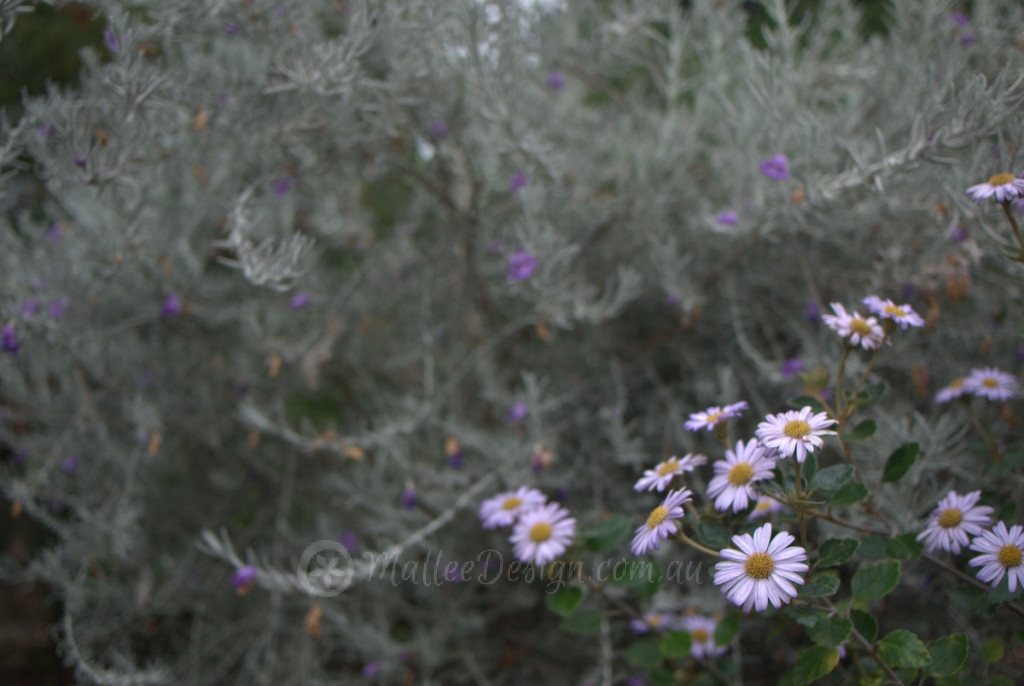
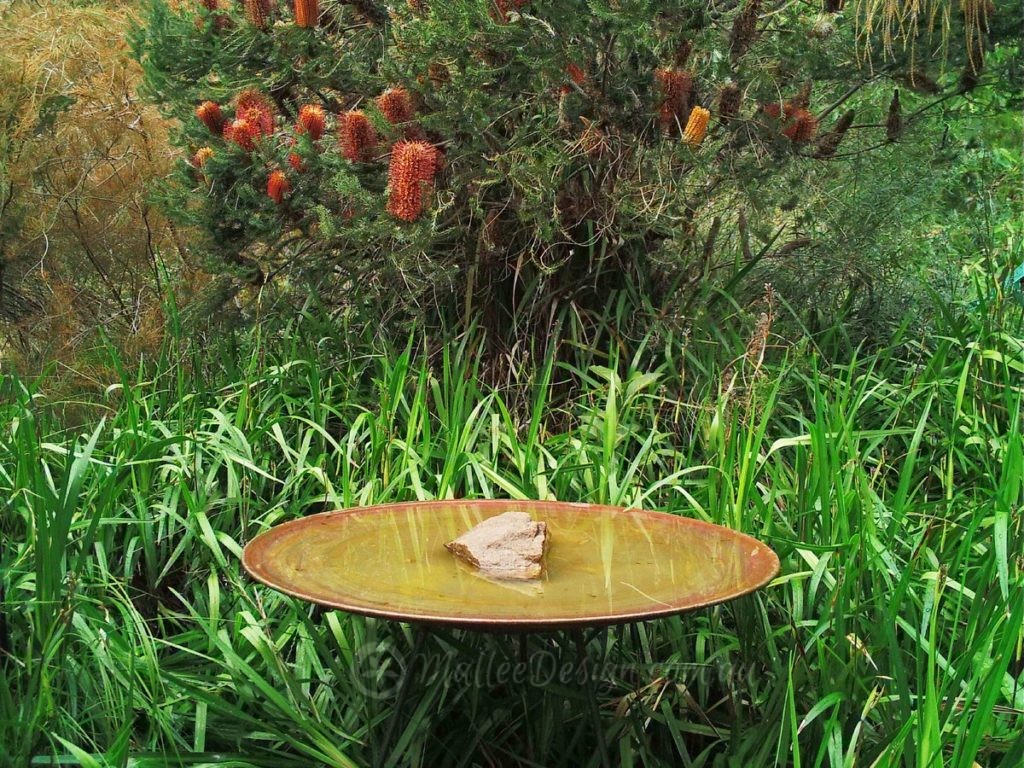
Leave a Reply